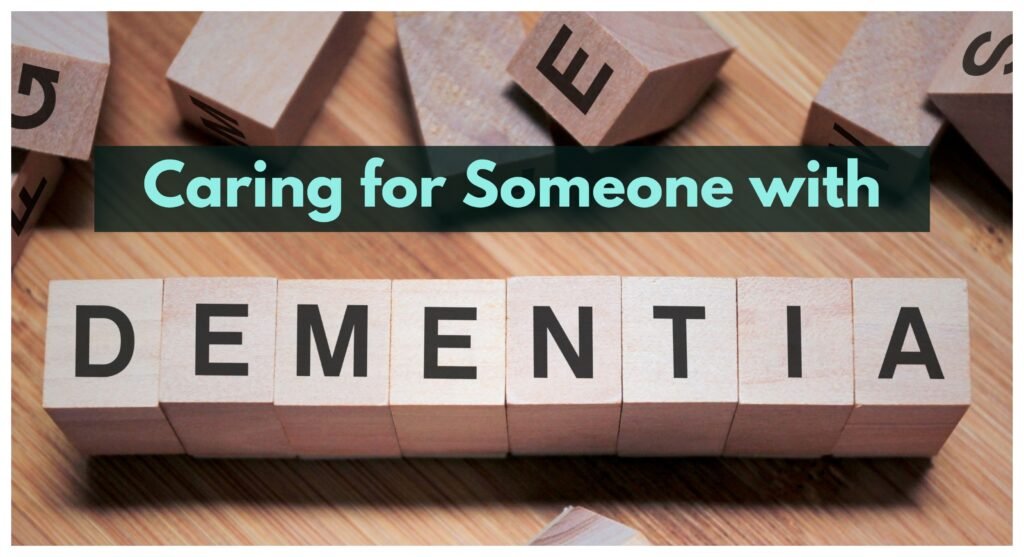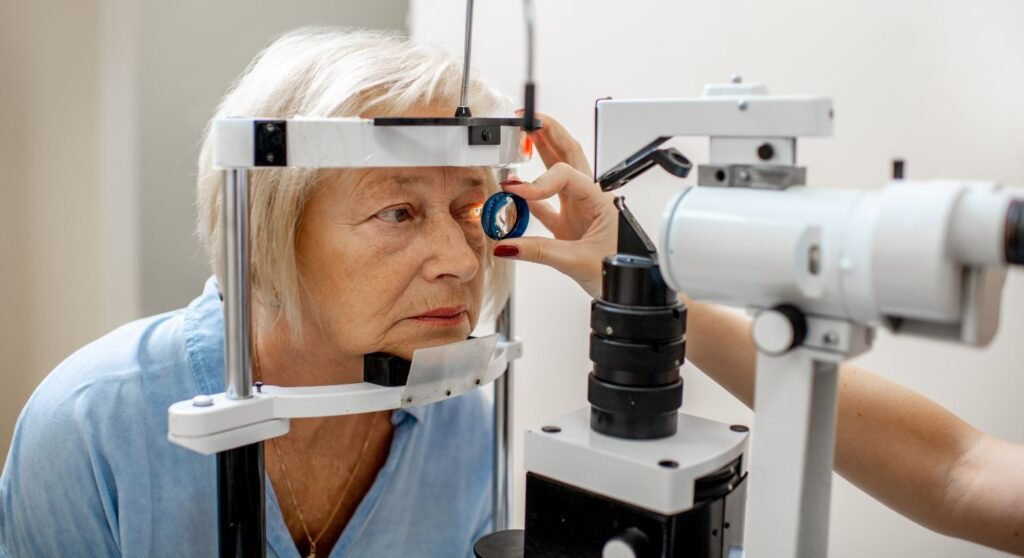Hearing Loss and the Brain: OTC Hearing Aids & Cognition
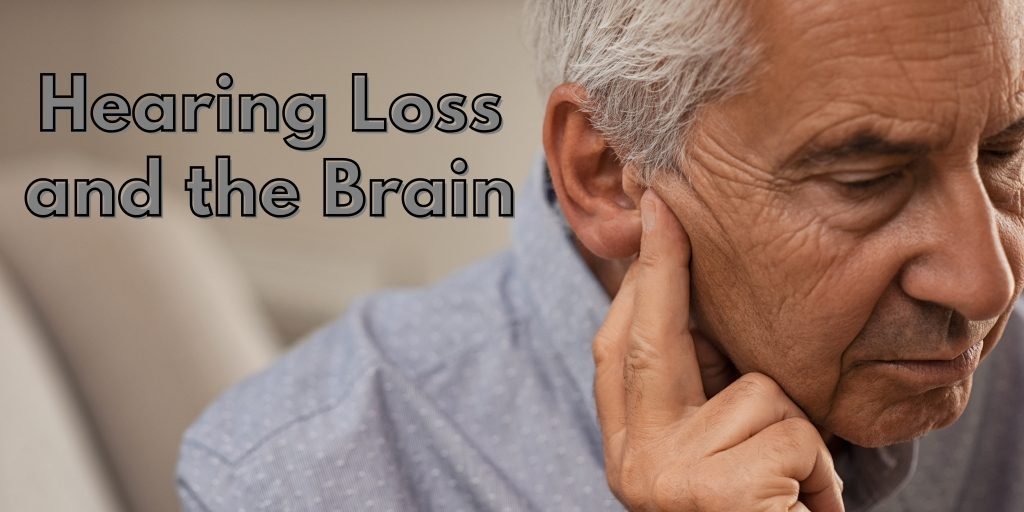
Last Updated on August 28, 2025 by Rose Ann
Imagine sitting at dinner with friends, nodding along but missing half the conversation. Over time, this doesn’t just affect your social life — it affects your brain health. Hearing loss and the brain are deeply connected, and untreated hearing loss is linked to memory decline, reduced focus, and even dementia risk.
The good news? Advances in over-the-counter (OTC) hearing aids now make it easier — and more affordable — to protect both your hearing and your cognition. Understanding this link can help you stay sharp, social, and confident for years to come.
This guide breaks it all down:
- The science of hearing loss and the brain
- How OTC hearing aids support cognitive function
- A practical guide to choosing the right device
- Common mistakes to avoid and advanced insights
- FAQs to answer what most people search for
Whether you’re considering a hearing aid for the first time, helping a parent make a decision, or simply curious, this deep dive will equip you with science-backed insights and practical tips.
The Connection Between Hearing Loss and the Brain
Understanding the connection between hearing loss and the brain is the first step toward protecting both your hearing and cognitive health.
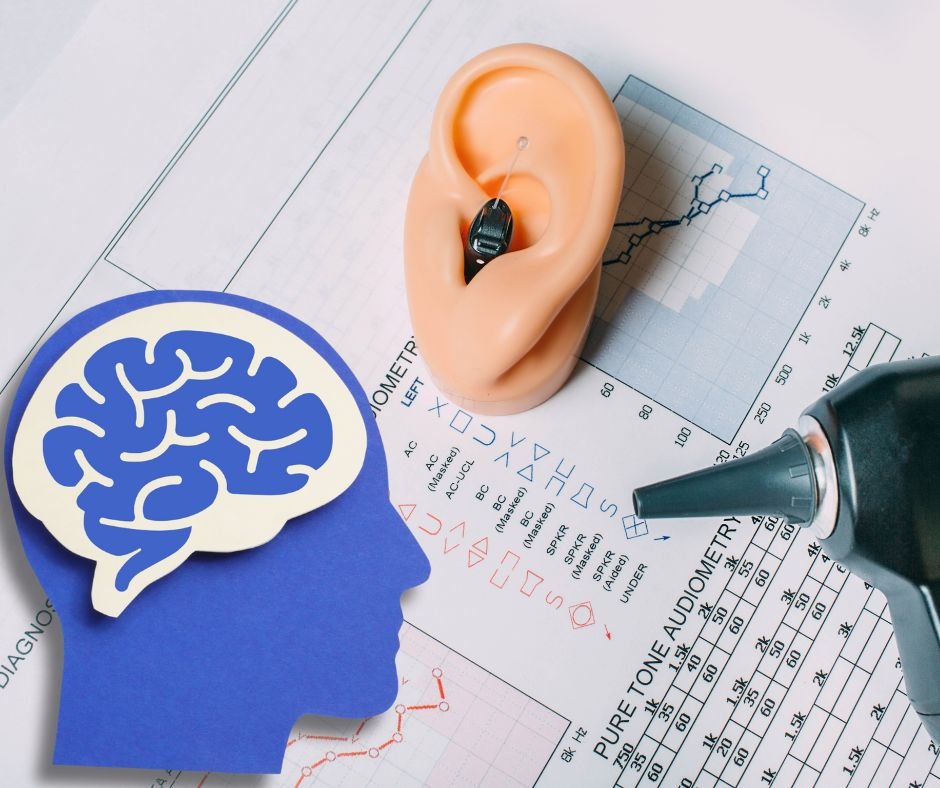
What Happens When We Hear?
Hearing isn’t just an “ear thing.” It’s a brain-powered process. Sound waves enter the ear, get converted into electrical signals, and the auditory cortex in the brain interprets them into meaningful words, music, or environmental cues.
When hearing loss occurs, the brain receives fewer signals. Over time, this reduced input forces the brain to work harder — sometimes at the expense of memory and concentration. This is what happens during hearing loss:
- Auditory deprivation occurs
- Fewer signals reach the brain.
- Cognitive load increases
- Your brain works more overtime to fill in gaps.
- Brain reorganization happens
- Regions normally used for hearing may shift to other tasks.
Over time, this can lead to memory lapses, reduced attention, and higher dementia risk. According to a Johns Hopkins study, untreated hearing loss may double the risk of dementia for moderate cases and triple it for severe cases.
Why Hearing Loss Impacts Cognition?
Hearing loss is often thought of as a simple matter of the ears, but the effects go far deeper. When left untreated, hearing difficulties can ripple through nearly every aspect of brain function. Let’s explore three main reasons why this happens.
Social Isolation: The Silent Risk
Conversations are the brain’s daily workout. Each time you engage in small talk at the market or chat with family over dinner, you’re stimulating the areas of the brain responsible for memory, language, and decision-making.
But with hearing loss, these moments often become frustrating. Words blur together, jokes are missed, and background noise feels overwhelming. Many people start to withdraw from social situations simply to avoid the embarrassment or exhaustion of struggling to keep up.
The result? Reduced social engagement equals reduced brain stimulation. Studies have shown that social isolation is a major risk factor for cognitive decline and depression. Without frequent, meaningful interaction, the brain isn’t challenged as often — just like muscles that weaken without regular exercise.

Cognitive Overload: When the Brain Works Too Hard
Think of the brain as a computer with limited processing power. When hearing is impaired, the brain spends extra energy trying to decode incomplete sound signals. Instead of smoothly understanding speech, it scrambles to fill in missing words or lip-read cues.
This constant strain is known as cognitive overload. Because so much energy is spent just trying to listen, fewer resources are available for higher-level tasks such as forming memories, solving problems, or paying attention. Over time, this mental fatigue can make everyday activities feel overwhelming and can accelerate overall cognitive decline.
Structural Brain Changes: Seeing the Impact
The effects of hearing loss are not just functional; they’re physical. Advanced imaging studies, including MRI scans from Johns Hopkins University, show that people with untreated hearing loss experience faster brain shrinkage compared to those with normal hearing. The regions of the brain responsible for processing sound—particularly the temporal lobe—can actually shrink due to underuse.
This phenomenon is sometimes called auditory deprivation: without regular sound input, the brain’s hearing centers weaken. Even more concerning, other regions of the brain may be “recruited” to handle listening tasks, leaving fewer resources for memory or reasoning. It’s a clear demonstration of the phrase, “Use it or lose it.”
Protecting hearing isn’t just about clearer conversations — it’s about protecting your brain. Addressing hearing loss early helps keep you socially active, reduces mental strain, and preserves the very structures of the brain that support memory, focus, and independence.
How Hearing Aids Help the Brain
Hearing aids do more than just make sounds louder — they give your brain the stimulation it craves. Here are what hearing aids can do:
- Restoring Input: A Brain Workout
- When hearing aids amplify sound, the brain gets more accurate signals again. This reduces cognitive strain and allows memory, focus, and processing skills to function normally.
- In short, they’re not only tools for better hearing but also powerful allies for brain health.
- Social and Emotional Benefits
- Hearing better means reconnecting with friends, family, and activities—keeping the brain sharper through engagement. Social interaction is one of the most effective ways to slow cognitive decline.
- Research Evidence
- A Lancet Commission report lists hearing loss as the most modifiable risk factor for dementia.
- Studies show hearing aid use significantly improves cognitive test scores and slows brain atrophy.
Bottom line: Treating hearing loss doesn’t just help your ears — it helps your brain stay young.

OTC Hearing Aids: A New Era of Accessibility
For decades, hearing aids were seen as expensive, complicated, and out of reach for many. They required doctor visits, custom fittings, and often came with price tags that put them out of budget. That’s all changing.
With the introduction of over-the-counter (OTC) hearing aids, adults with mild to moderate hearing loss now have easier access to devices that can make a real difference in daily life. Affordable, user-friendly, and available without a prescription, these hearing aids mark a new era — one where better hearing and sharper brain health are within reach for more people than ever.
What Are OTC Hearing Aids?
The FDA approved a groundbreaking category: OTC hearing aids. Unlike traditional prescription aids, OTC devices can be purchased in pharmacies, big-box stores, or online.
They’re designed for adults with mild to moderate hearing loss, and they:
- Offer advanced features like Bluetooth streaming, smartphone apps, and rechargeable batteries.
- Cost less (typically $200–$1000 vs. $4000+ for prescription).
- It doesn’t require a medical exam or an audiologist visit.
Why OTC Matters for Cognitive Health
- Earlier adoption
- People often wait 7–10 years after noticing hearing problems before seeking help. OTC lowers barriers, so more people treat hearing loss sooner.
- Accessibility
- Easier purchase means fewer seniors miss out on brain-protective benefits.
- Technology democratized
- Many OTC aids now have AI-driven sound processing once reserved for high-end devices.
How OTC Hearing Aids Help Brain Health
- Restoring Auditory Input
- By amplifying sound, they keep the auditory nerve active, preventing brain atrophy.
- Reducing Cognitive Strain
- With clearer hearing, the brain spends less energy guessing words and more energy remembering.
- Encouraging Social Engagement
- Conversations become easier, reducing isolation — a known risk factor for cognitive decline.
- Promoting Neuroplasticity
- Regular auditory stimulation helps keep brain circuits flexible and active.
How to Choose an OTC Hearing Aid
This decision can feel overwhelming, but here’s a step-by-step framework:
Step 1: Know Your Hearing Profile
- Mild to moderate loss? OTC is a fit.
- Severe/profound loss? See an audiologist.
- Unsure? Take an online hearing test as a starting point.
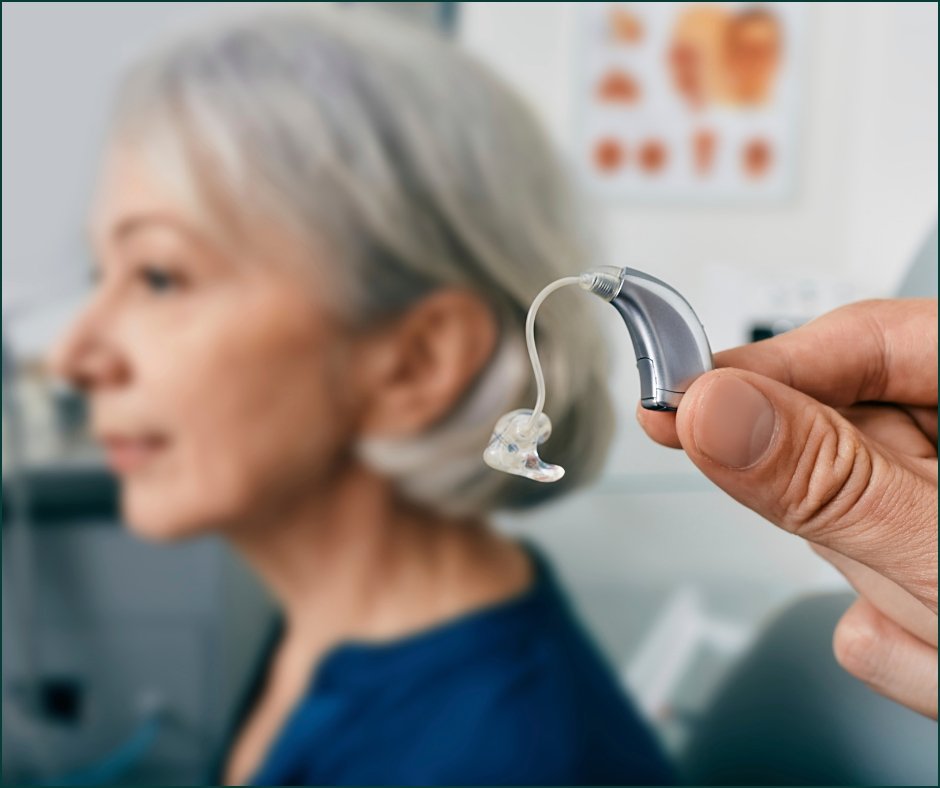
Step 2: Match Features to Lifestyle
- Socially active?
- Look for strong noise-reduction.
- Streaming music/podcasts?
- Bluetooth is a must.
- On the go?
- Choose rechargeable vs. disposable batteries.
- Tech-friendly
- Smartphone apps allow custom adjustments.
- Directional microphones (improve speech understanding in noise)
- Feedback cancellation (reduces whistling)
- Volume control & presets
Step 3: Compare Fit & Comfort
- Behind-the-ear (BTE): Discreet, comfortable, easy to manage.
- In-the-ear (ITE): Smaller, but may have fewer features.
Step 4: Budget Wisely
- OTC models: $200–$1000.
- Entry-level models: $300–$500 per pair
- Mid-range: $600–$1,200
- Premium: $1,500+ with advanced features
- Remember: lowest isn’t always best. Balance affordability with features for long-term benefit.
Step 5: Trial Period & Support
Many reputable brands offer 45–60 day trials. Always choose one with refund options and customer support.
Mistakes to Avoid When Buying OTC Hearing Aids
- Skipping a hearing test – You need the baseline.
- Thinking “louder is better” – Clarity matters more than volume.
- Buying solely on price – A $150 aid may not handle complex listening environments.
- Ignoring ergonomics – Comfort is crucial if worn 8–12 hours daily.
- Not using them consistently – The brain needs steady input to rewire and adapt.
Practical Comparisons: OTC vs Prescription Aids
| Feature | OTC Hearing Aids | Prescription Hearing Aids |
|---|---|---|
| Cost | $200–$1000 | $2000–$6000+ |
| Access | Pharmacy/Online | Audiologist only |
| Setup | Self-fit | Professionally configured |
| Who it’s for | Mild–moderate loss | All levels |
| Tech | Increasingly advanced | Highest sophistication |
Takeaway: OTC works well for many, but those with advanced needs still benefit from prescription models.
Take Action for Your Brain Health
Hearing loss and the brain are deeply interconnected. Untreated hearing loss isn’t just about missing conversations — it risks memory, cognitive vitality, and independence.
OTC hearing aids make treatment more accessible, affordable, and convenient than ever before. By choosing the right device and wearing it consistently, you’re not just improving hearing — you’re actively protecting your brain health.
If you’ve noticed struggles with hearing or concentration, don’t wait. Explore OTC hearing aids, consult with your doctor if needed, and take the first step toward sharper thinking, richer conversations, and a healthier future.

Frequently Asked Questions
- Do OTC hearing aids work as well as prescription ones?
- For mild-to-moderate hearing loss, yes. Severe loss still requires prescription aids.
- How long does it take to adjust?
- Most people adapt within 2–4 weeks.
- Are OTC hearing aids covered by insurance?
- Generally no, but they are significantly more affordable.
- Can hearing aids really prevent dementia?
- They don’t “prevent,” but studies show they reduce risk by keeping the brain engaged.
- How do I know if OTC hearing aids are right for me?
- If you frequently ask people to repeat themselves or struggle in group settings, they may be worth trying.


